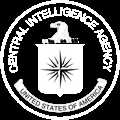
Deora Bodley (left) with her mother Debby Borza (right)
Deora Bodley was a gifted and compassionate 20-year-old who loved ***** and animals. Even as a *****ager, she was active in her community, volunteering with animal shelters, Special Olympics, AIDS charities, and St. Jude’s programs.
She doted on her little sister, Murial, who was ten years *****er, writing letters to her in multi-colored markers. A double-major in French and ***** psychology, Deora planned to turn her heart for *****ren into a career as a ***** psychologist. She had a life of accomplishment and service set out before her.
Before starting her junior year at Santa Clara University in California, Deora traveled to the East Coast to squeeze in one last visit with friends and make the most of her summer break.
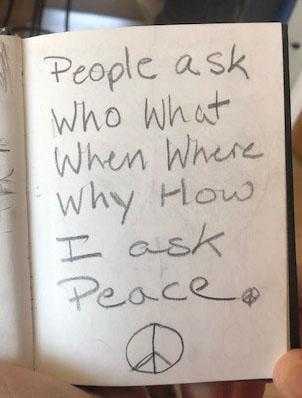
A page from Deora’s journal reveals an introspective ***** woman with a deep sense of purpose.
Debby Borza, Deora’s mother, was getting ready for work in her San Diego home on September 11, 2001 when the phone rang. It was a little after 7am. On the line was the mother of her daughter Deora’s boyfriend, calling from San Francisco, where Deora was due to land later that day on a flight from New Jersey.
This was the first time Debby heard that Deora had changed her return travel plans—Deora had used up the last of her cell phone battery to leave a message with her boyfriend’s parents, letting them know she had secured a seat as a stand-by passenger on an earlier flight. The flight was United 93, which had reportedly crashed in a field somewhere in Pennsylvania.
Debby found what she was hearing difficult to process.
“My first reaction was, ‘Thank you for letting me know… It’s not that I think you’re lying, it’s just that I don’t want to believe you,’” Debby recalls.
She tried to put the disturbing information aside in her mind and focus on getting herself and her *****er daughter Murial out the door. She dropped Murial off at school and then settled into her desk at work.
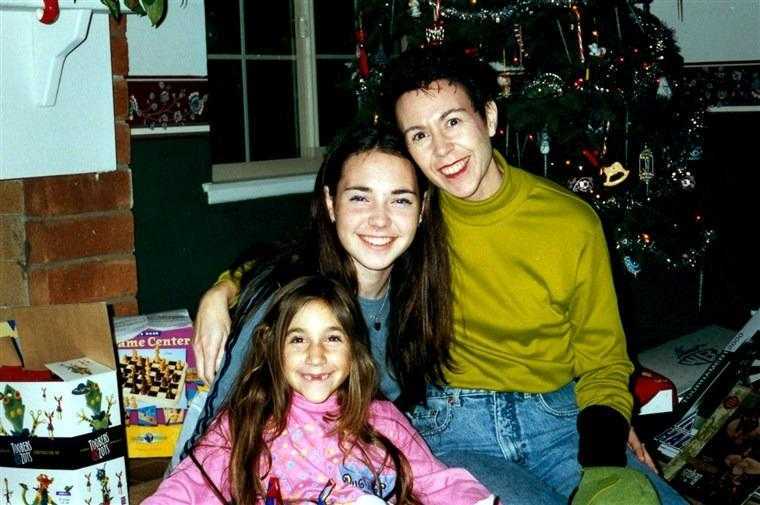
Debby with daughters Deora and Murial.
The phone rang again. This time, it was Deora’s friend Aly, who was crying hysterically on the other end. Aly explained that she would have missed her first class of the semester had she dropped Deora off at the airport for her original flight. They parted ways bright and early at the departures area with a hug and kiss goodbye, and now, Aly believed Deora was on Flight 93 and blamed herself for it.
Debby tried to calm her down, telling her to seek out friends or to go to the school counselor and not be alone while they awaited more information. Fear started to take hold as she hung up the phone.
Watch as Debby describes Deora’s whereabouts on the morning of September 11, 2001, which started out as an ordinary day.
Deora found herself on Flight 93 as a stand-by passenger. Her friend was starting her first day of class that day, and she would have missed her class had she dropped Deora off on-time for her original flight. So Deora said, ‘Well, I’ll just catch an earlier flight. Drop me off early so you can get to school.’ They kissed each other goodbye on the curb, and Deora went into the airport and her friend went off to school.
I was in California so my timeline is 3 hours behind the East Coast. So I received a phone call a little bit after seven in the morning from Deora’s boyfriend’s mother. She let me know two things. The first thing she let me know is that Deora had called her and left a message asking to come pick her up early at San Francisco airport because she was coming in on Flight 93. She then told me she had heard that a plane had crashed in Pennsylvania, and they said it was United Flight 93. That was the plane that Deora was on.
My first reaction was, ‘Thank you for letting me know. I’ll have to find out more information. It’s not that I think that you’re lying, it’s just that I don’t want to believe you.’
She called United Airlines and left her contact information. Still, she did not want to believe the worst.
Across the street from her office, there was a Catholic church. Debby didn’t know where else to go. The beautiful, Spanish-style sanctuary was crowded with people, and the sun shone bright beams onto the simple wooden pews. She set her phone down and knelt in prayer.
“I asked God where she was. Only He knew where she was,” she shared. “And a quiet voice in my head said, ‘She’s with me.’”
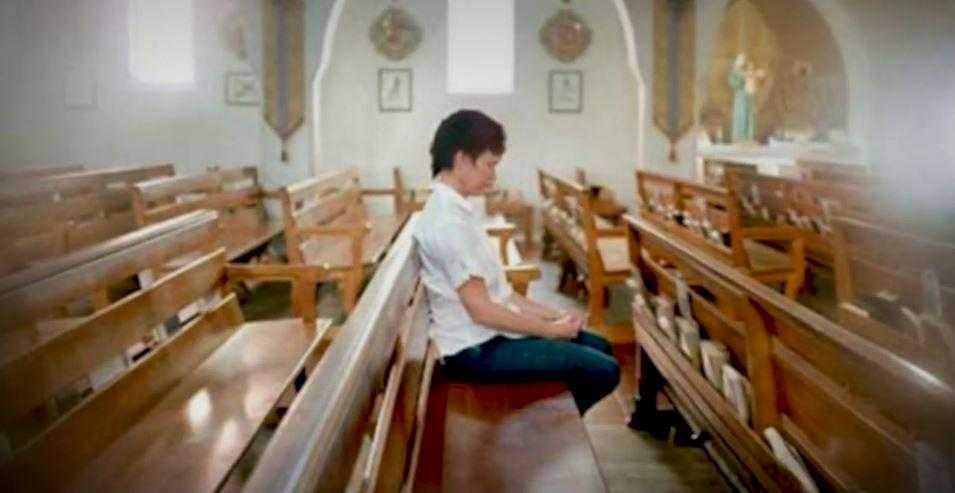
Debby sits in the church where she sought solace on September 11, 2001.
Once more, her phone rang. This time, the news wasn’t blunted by uncertainty. It was a representative of United Airlines. Debby still remembers her name: Sharon DeWitt. Sharon confirmed what Debby had not wanted to accept. Deora was gone.
“I remember screaming in the church and yelling out, ‘Not my baby!’ I don’t know how long I was crying, and then I remembered I had left her hanging on the phone.”
She collected herself, picked up the phone, and found Sharon waiting patiently. Debby apologized for leaving her on the line and asked how many more calls like this she had to make.
“A few more,” Sharon replied gently.
Debby thanked her for her courage and strength and told her she would be praying for her as she made those calls.
“I knew it wasn’t always going to be about me and my loss. It was the nation’s loss.”
She could not have fully realized at the time, but this was the start of her journey extending a selfless hand to others in the midst of her grief. The first step of turning her pain into a greater purpose.
Watch as Debby remembers receiving the call that she had lost her daughter on Flight 93 and then having to break the tragic news to family.
So then I called United Airlines and left my information with them.
Later that day, it was a little after noon, I had left work and went to the church across the street. The church was full of people. I went in there, set my phone down on the pew, and got down on my knees and asked God where she was. Only He knew where she was. And a quiet voice in my head said, ‘She’s with me.’
And then the phone rang. It was Sharon from United Airlines. She said, ‘Deborah Borza?’ and I said, ‘Yes.’ She went on, ‘My name is Sharon. I’m with United, and I’m sorry to inform you…’ That’s all she was able to say before I dropped the phone. I remember screaming in the church. Yelling out, ‘Not my baby!’ I don’t know how long I was crying before I remembered I had her hanging on the phone. I picked up the phone, and Sharon was still there. I asked her how many other phone calls like this she had to make, and she said she had a few more calls. I apologized for leaving her there for, I don’t know how long. She said that was alright, and I remember thanking her for her strength and courage and let her know that I was at the church and would pray for her while she had these other phone calls to make to family members.
So I called Derrill, and he was driving in to work. He worked at the Music Department up at the University of the Pacific. I asked him to pull over to the side of the road because I had some sad news I had to give to him and I didn’t want him driving. I let him know about our daughter. My next phone call was to my parents, to let them know about their first grand*****. My mom picked up the phone and asked me if I knew what was going on. I said I did, but I had some bad news. And I told her about Deora. She did what I did. She dropped the phone. I could just hear her crying. My dad picks up the phone. He was angry when he first spoke to me. He asked what I had said to make my mom so upset. So I had to tell him what happened to Deora. And there was a silence. Then he said he was ‘going to hang up to take care of your mom.’
Turning Grief into Love
The following weeks and months were a blur of personal mourning interrupted by meetings with investigators and government officials and public remembrances.
In late September 2001, Debby went to the White House with other Flight 93 family members to meet with President Bush and the First Lady. White House staff lined the hallway as the families exited the building, everyone moved by the nation’s shared trauma.
As Debby shook hands with the staffers who offered their condolences, one ***** woman in particular caught her attention.
“She had put out her hand to shake my hand, but she couldn’t look at me,” Debby remembers. “And I just let her know that her job wasn’t done yet, that to have my daughter’s life and death mean something, that she continue to do her job here, and that I loved her. And that’s when she looked up at me and said that she loved me, too.”
Somehow, in that moment, Debby had summoned the strength to console someone else. However, as she proceeded down the line, it wasn’t but a few steps beyond the White House threshold that she collapsed from the weight of it all.
“I knew that’s what it was going to be like to be with people while trying to process this traumatic event. I realized I could use this event to make a difference in the quality of people’s lives, so that they could carry on,” Debby says. And she figured if they could strengthen their resolve, so could she.
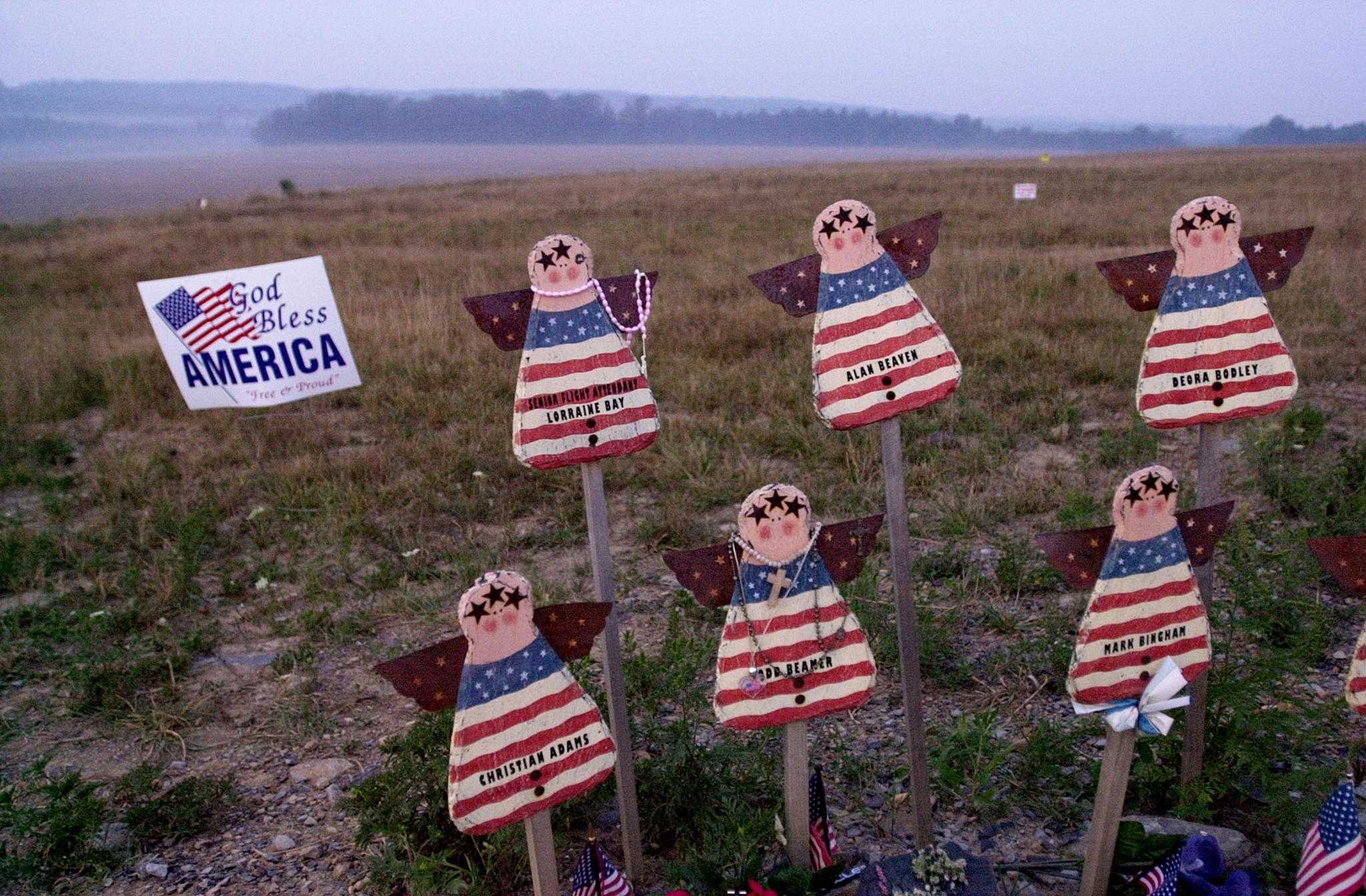
Hand-crafted angels bearing the names of the Flight 93 victims at the makeshift memorial overlooking the crash site in Shanksville, Pennsylvania, August 12, 2002. [Photo by Shawn Thew/AFP via Getty Images.]
By 2002, Debby’s impulse to find meaning and connection through tragedy began to crystalize. She and other family members of those lost on Flight 93 embarked on the long, arduous process of establishing the Flight 93 National Memorial. They set up a non-profit foundation to raise funds and sifted through the mountains of red tape involved to get the National Parks Service on board, obtain appropriations from Congress, and acquire the land.
The land for a permanent memorial had to be purchased from private citizens, and it wasn’t a given that they would be willing to sell. The Secretary of the Interior asked Debby what he should say to the landowners.
“I asked him to remind them that they are a part of history now. That when they bring their *****ren and their *****ren’s *****ren… they can proudly say that this used to be your land and now this land belongs to the nation.”
Debby and the other family members poured their hearts and souls into the project, assisting with every detail, from the design selection to curating items for the museum to planting trees. They stood with Presidents Bush, Clinton, and Obama at its dedication in 2011.
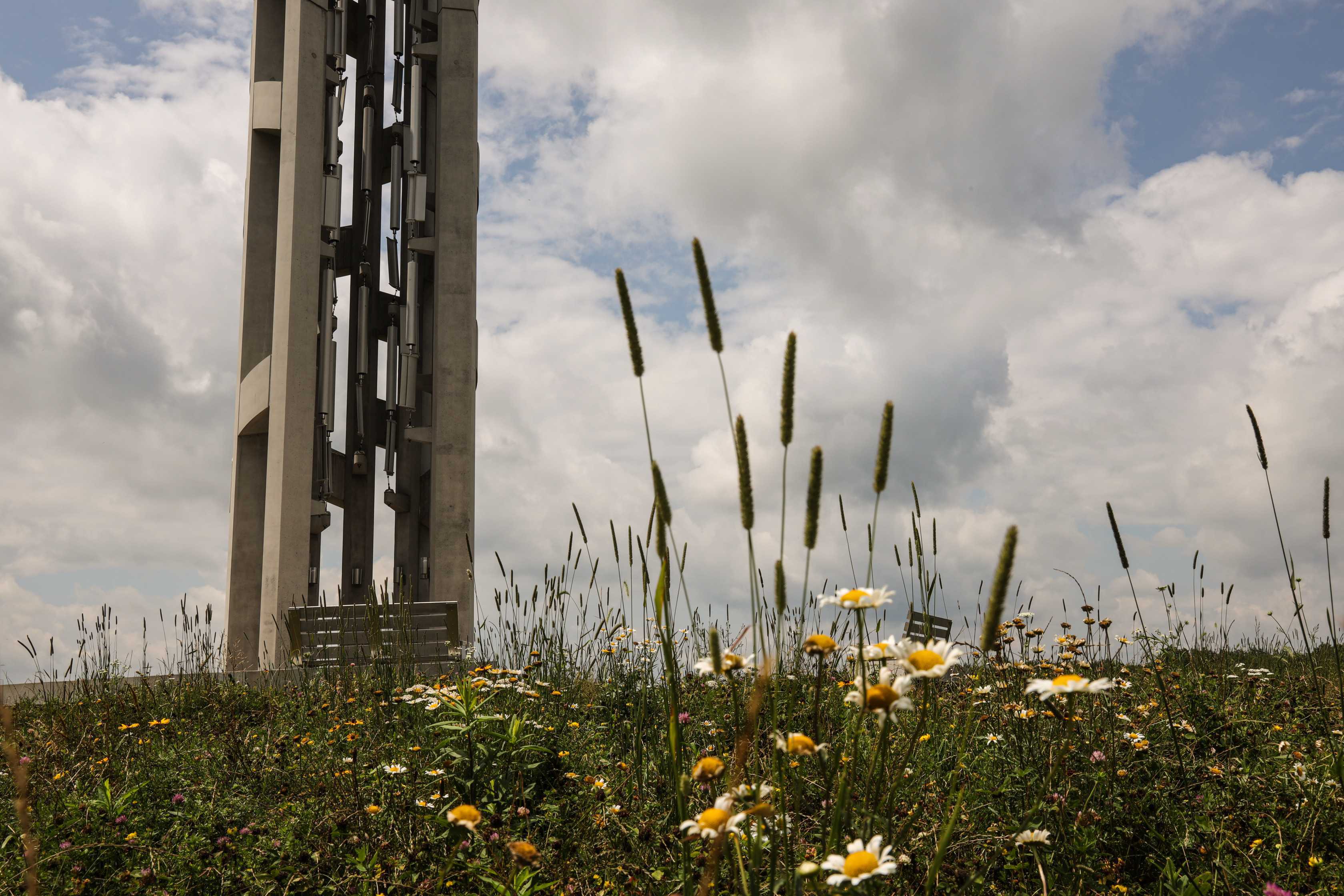
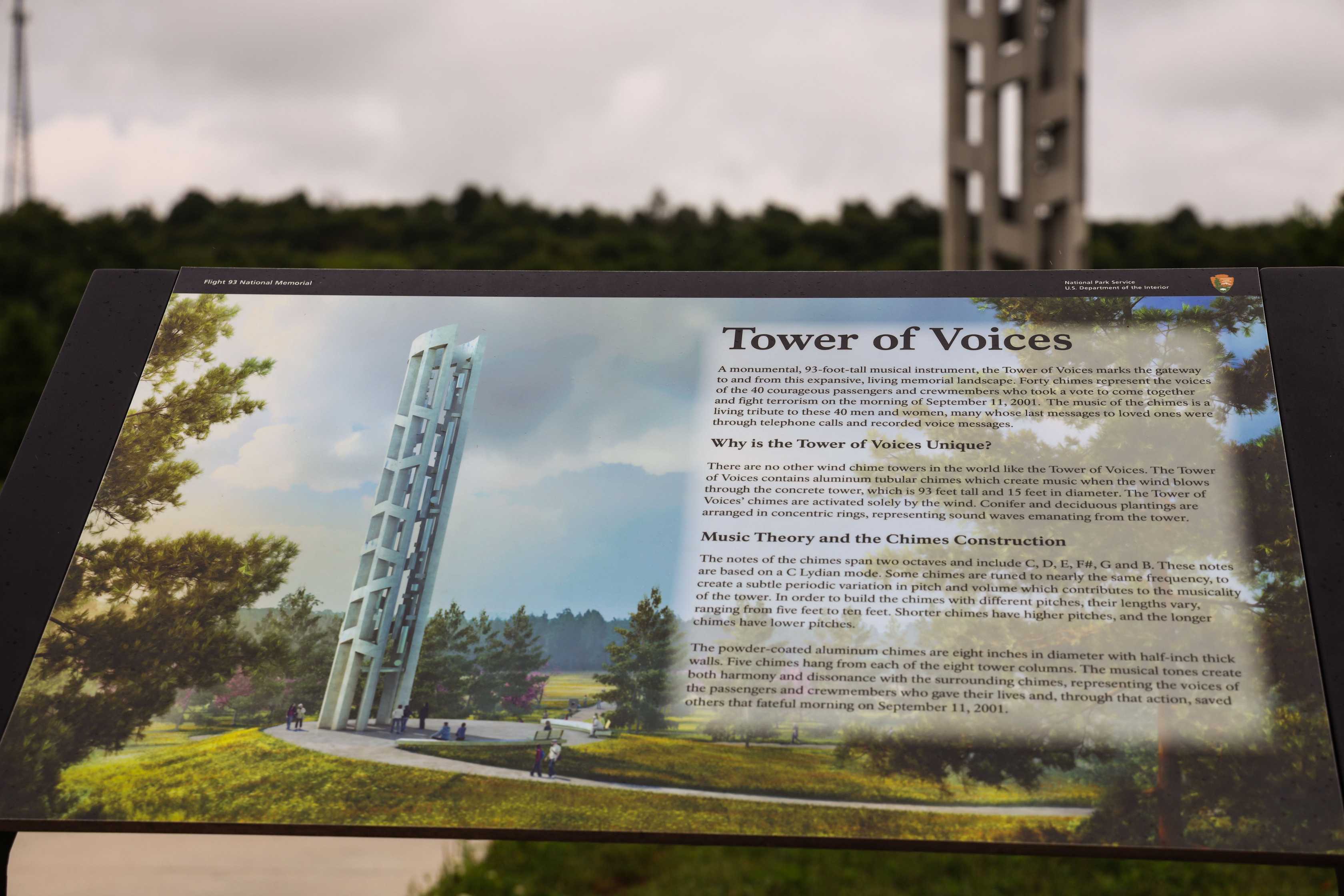
The Tower of Voices at the Flight 93 National Memorial. It includes 40 wind chimes – one for each victim. [Photos from nps.gov]
The visitor center was completed in 2015, and the last piece of the design, a giant wind chime featuring one chime for each of the 40 victims, was completed on September 10, 2020. Debby has also been involved in the 9/11 National Memorial Trail Alliance, which connects all three 9/11 sites—the Memorial at the World Trade Center in New York City; the Pentagon Memorial in Arlington, Virginia; and the Flight 93 National Memorial in Shanksville, Pennsylvania—via biking and pedestrian trails.
Over the years, Debby has broadened her message of patriotism, love, and resilience by regularly speaking with people across the country. She even speaks with prison inmates about the impact of violent crimes on victims. She uses the communal, national tragedy they experienced on 9/11 to help them learn empathy for victims of crimes such as those they may have committed.
She’s had to adapt her presentation over the years as more and more of the ***** people she interacts with have no memory of 9/11.
“Who Are You People?”
A chance encounter in 2015 opened yet another avenue for sharing her experience. This time, Debby was at a charity banquet honoring Hollywood director Paul Greengrass, who directed the film United 93. Debby and other Flight 93 family members had been intimately involved in making the film and had become friends with Paul. Unbeknownst to her, she was seated at dinner next to a CIA officer, whose husband was on the charity’s board.
They began to chat, and the officer, Holly Fletcher, was overwhelmed by Debby’s amazing spirit.
“I was blown away by how open she was, how gentle and kind, and how she had turned this horrible experience into a mission of putting love out into the world,” Holly recalls. “She had not an ounce of malice or bitterness in her heart.”
At the time, Holly was an officer with the Directorate of Analysis (DA) and teaching in the Sherman Kent School’s Career Analyst Program (CAP). She and her colleagues had been discussing how to share more of the Agency’s history and heritage with all new DA officers. One issue they were already confronting was the waning impact of mission-shaping events, such as 9/11, as time passed. Most of the officers in the course were small *****ren on 9/11 and only had hazy memories of that day. Soon, many incoming officers would not even have been born when the attack happened.
Holly mentioned to Debby that she was a teacher, and Debby immediately offered to meet her class at the Flight 93 memorial for a personal tour. Holly, seeing an opportunity for her students to engage in a vivid learning experience, soon contacted Debby, and plans to take the class to Pennsylvania were set in motion.
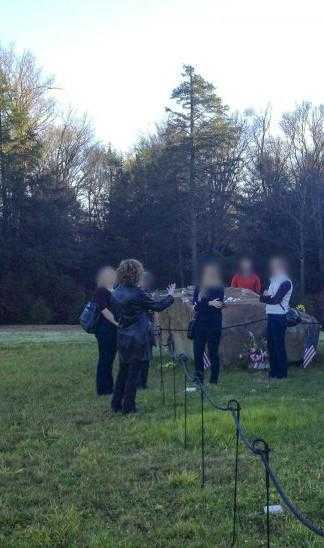
Debby speaks to a CAP class at the crash site.
Debby had no idea she was escorting a group of CIA officers around the memorial when the tour took place a few months later.
“I didn’t ask many questions and just kind of showed up,” Debby says. “I didn’t really much care, just excited that people were interested.”
“I thought I told her where I taught,” Holly laughs. “I’m pretty sure I did, apparently not clearly enough, because I was concerned about how she might feel about the Agency. I could imagine she might blame us in some way.”
The memorial was still under construction at the time, so Debby guided the officers through the completed portions and the grounds, told them about the plans, and even took them down to the impact site, marked by a boulder and closed off to the public. And of course, she told them about Deora.

Debby Borza at the Flight 93 National Memorial in front of the photo of her daughter, Deora. Debby has become part of the extended CIA family through her service to the Directorate of Analysis Career Analyst Program and her donation to the CIA Museum.
The experience left an indelible mark on the students, some of whom were brought to tears. The group then presented Debby with a small token of gratitude.
She smiles as she remembers the class and explains the moment she realized who they were. “I opened up the gift, and it was a mug from the Central Intelligence Agency. I looked up at everybody and asked them, ‘Who are you people?’ Who are you?’ And they all chuckled.”
“I looked at the mug again and kind of went, ‘Ohhh!’ Then I asked if there was a microphone in the mug or if it was safe to use in the microwave,” she laughs.
Watch Debby recount her first interaction with a group of CIA officers and how she continues to support new CIA officers.
I was given a gift. I opened up the gift, and it was a mug from the Central Intelligence Agency. I think I looked up at everybody and asked them, ‘Who are you people? Who are you?’ And they all chuckled. I looked at the mug again and kind of went, ‘Ohh!’ Then I asked if there was a microphone in the mug or was it safe to use in the microwave.
And then I continued to receive other invitations to meet with the different CAP classes up at the memorial. Just became more and more aware of the story that I was providing to these students and what it meant to them. Finding out certain students had continued on in the Agency because September 11th. Talking to students who lost family members in the World Trade Center. Talking to students who were barely old enough to know about September 11th.
I loved going to the graduations and meeting the officers’ families. I loved thanking them for the sacrifice that they make so that their family member can do the job that they’re passionate about doing.
Since then, Debby has gotten to know the people of CIA very well, donating to the CIA Museum the high school gym bag that Deora was toting on her last flight for officers to remember Flight 93 and engaging with several CAP classes and coming to Headquarters to attend the officers’ graduations. She says the experience has taught her to value the Agency and other public servants for their dedication to the nation. It has also caused her to revisit her encounters with the FBI and Department of Justice officials who investigated and prosecuted the 9/11 cases. At first, she resented their intrusion into her life. At times, she confesses she was brusque and unfriendly in response to their questions and requests.
“Before September 11th, I paid no attention to the work of the government. You know, I was just busy raising my girls and working,” she says. “But then it dawned on me. They were just doing their job. So, every time I’m with the CAP classes, I let them know how appreciative I am of what they do. I understand that there’s lots of things that they do that I’ll never know about, but it gives me the opportunity to just walk around free, without a care in the world. I know that they make a difference, and they allow me to make the kind of difference that I like to make while I’m here.”
In memory of Deora Bodley and the passengers and crew of United Flight 93.
